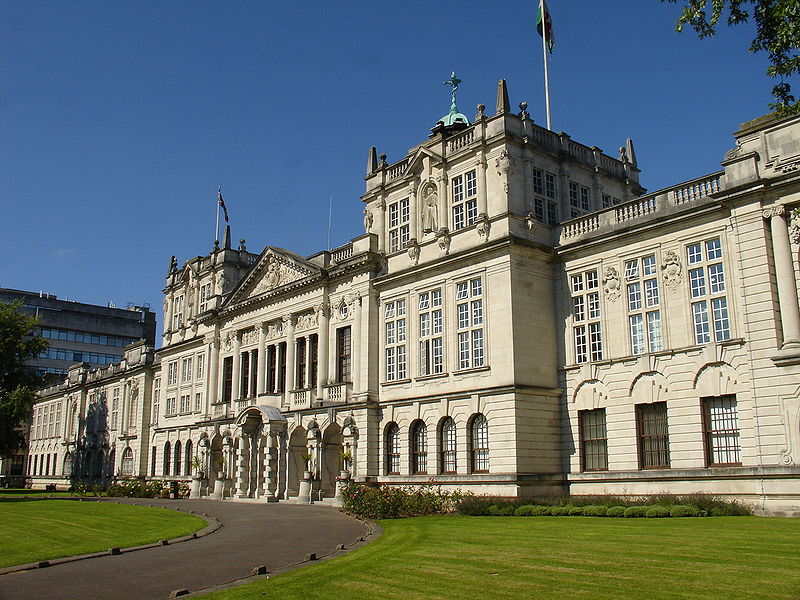Eben Myrddin Muse argues that Plaid Cymru’s lack of a vision on land is a gap in their electoral strategy.
For the 2024 election, land use was missing from the Plaid Cymru manifesto. I’m not talking about planning permissions, pylons, or natural resources. I’m talking about land reform: genuine ideas for reforming the ownership, distribution, use of, and access to Welsh land.
On the face of it, Plaid had a relatively impressive General Election performance – equalling their highest-ever seat count of four despite the combining of two of their priorly held seats. It was an assured performance from Rhun ap Iorwerth, whose leadership received praise. On the other hand, all four Plaid seats are comfortably within their traditional heartland. They increased their vote share to a record high of 14.8% in a General Election, but stooped to fourth place in the popular vote behind a resurgent Reform party. Voter turnout was also incredibly low. A good performance yes, not a breakthrough.
We’ve been here before: Plaid have scored 4 seats in 6 out of the last fourteen general elections. This is not to diminish two excellent victories in Carmarthen and Ynys Môn, but Plaid aren’t currently a party set up for growth, nor are they on a trajectory for electoral victory.
What’s land got to do with it?
So what has their land use policies got to do with Plaid’s electoral future? Well, land and our national relationship with it cuts to the heart of many of our national crises, from biodiversity loss to climate change, to housing, tourism, to farming. It’s as fundamental a facet of ‘Welshness’ as I could ever try to define and the tensions between urban and rural have come to define us too, politically and socially. Wales is a country which suffers from extreme poverty, most prevalent in rural areas. We are subjected to a culture war near constantly playing out in our national media. The brain drain from the countryside affects the Welsh language too. All of these issues relate to land use – it is therefore strange for Wales’ nationalist party to have a political blind spot regarding how we can ‘do’ land use better. Yet, the manifesto featured no mention of rights of way, or national parks; no mechanisms for empowering communities to manage land or help for tenant farmers to buy. There was no mention of access reform either, not even a token nod for more urban green spaces for public health. To me this felt like a glaring omission, but it is one that speaks to a deep-rooted contradiction in Plaid Cymru’s identity and to the dead end of the party’s political philosophy.
They clearly want to be a party that appeals to the whole of Wales – that’s why they call themselves the party of Wales, after all. But playing both sides in this way isn’t good strategy
More often than not, Plaid plays the part of a traditional conservative rural party – speaking with the voice of the Welsh farming unions when it comes to agriculture, proposing a motion to scrap nitrate vulnerable zone regulations, opposing the sustainable farming scheme tree targets, and calling for its scrapping altogether. Their general election manifesto garnered praise from the conservative Countryside Alliance (a pressure group whose president is the Baroness who led the opposition to the fox hunting ban) for their stance on rural issues. To win votes from the rest of us though, they assume the role of a left-wing environmentalist party (praised this time by Greenpeace), calling for the nationalisation of energy and transport, with bold calls for net zero by 2035, and for a Welsh Green New Deal. At first glance, this may seem like an astute strategy – praise from all sides of the political spectrum. But it’s incoherent: I once saw a Plaid MS and spokesperson warmly thank a room full of farming union lobbyists for being such great guardians of nature in Wales after a presentation, before walking down the conference hallway, stepping on stage with a stony face and declare with genuine emotion that Wales is tragically one of the most nature-depleted countries in the world. They clearly want to be a party that appeals to the whole of Wales – that’s why they call themselves the party of Wales, after all. But playing both sides in this way isn’t good strategy – to many of us it comes off as duplicitous.
For Plaid, there is a better way forward which confronts two realities. One: Welsh farmers and rural communities are actually far more progressive than many give them credit for, and preserving the status quo is insufficient for their survival – farming as an industry is lonely, ageing, and shrinking in Wales. Two: another way is possible – tackling land reform from a progressive point of view to the benefit of both farmers and urban voters is possible and necessary. It’s also the perfect springboard for the electoral success of a progressive nationalist party.
The Scottish model
We can learn this lesson from Scotland – where the SNP have spent decades building a political project not based on the cold-storage preservation of rural areas but on their regeneration, repopulation, and revival. As a key tenet of their agenda, land reform has been an enormously successful strategy. Although passed by Scottish Labour in 2003, since then the progression of the Land Reform Act has been a largely Nationalist endeavour. Upon forming a minority government in 2007, Alex Salmon was the subject of Labour jibes claiming he wasn’t going to be able to take land reform to the next stage. He proved them wrong and built an election-winning machine; it’s now one of the most popular acts that have passed in Holyrood and a point of national pride. The aim of the act wasn’t just to appeal to urban voters who wished to enjoy the countryside – from its conception it was radical and ambitious project to bridge the gap between people and land, with crucial assistance for farmers, revolutionary rights for public access, and much more. The act is a people-centred solution to the history of land injustice and poverty of the Scottish countryside and the cultivation of a sort of regenerative nationalism, giving everyone a sense of belonging in the landscape.
Robust debate and agenda-setting research.
Support Wales’ leading independent think tank.
For the land reform movement in which nationalists have been involved since the 1960s, connecting people with the land meant more than just a ‘right to roam’; it meant creating new rights and legal protections for tenant farmers, crofters, and empowering communities to own land via a community right to buy (something which Plaid has, in fairness, advocated for in the past). It meant proper transparency around who owns land (who owns Wales, I hear you ask? It’s hard to say!). A far cry from blaming the ills of rural communities on the unwashed masses, the purpose of the LRA was to bring people back into the equation and to recognise that a more populous countryside where lots of people have access to land both recreationally and to make a living on it is a healthier and more robust one and makes for a more robust Scotland. The passing of the Wildlife Management and Muirburn Act (featuring sanctions for grouse shoots found to be in breach of their licence) this year continued the pattern of recognising many of the worst problems of the countryside stem from under regulation and a historic legal framework created by and for those who own large swathes of the countryside. They have also increased the penalty for worrying livestock up from £1,000 to £40,000 and 12 months in prison. At time of writing, the SNP vote has plummeted due to corruption and scandal and of course there are lots of reasons for the SNP’s past electoral success – Brexit, the drive for independence and a Labour collapse among them – but a coherent political ideology and a plan for all of Scotland has served them well.
If they ever wish to break out of their backyard, if they ever wish to govern, they can’t continue to be a party of two Wales’; ideologically incoherent and intellectually dishonest
Plaid Cymru, on the other hand, have never so much as attempted to foster a critical debate around the future of land use in Wales in those terms, and for a party firmly rooted in the countryside I think that’s pretty bleak. Beyond criticisms of the Labour Government’s own deficiencies, there’s no vision, and no ambition. Burying pylons and opposing tree-planting targets doesn’t cut the mustard.
You could develop a thesis on why this is – Plaid is usually always keen to make comparisons with Scotland and to propose that we follow their lead. Plaid and the SNP are staunch parliamentary allies and sister parties, coordinating voting strategies and featuring in each other’s party conferences – why don’t they take a leaf from their book?
Our histories differ, of course – the clearances left the Scottish Highlands as one of the least populous areas in Europe, while Wales’ rural population continues to decline in many counties. Wales’ own process of enclosure was less methodical, and in some instances more successfully resisted. We have a different land history, different scars on our landscape, which call for a different pathway of reform and rejuvenation. Much of the core malaise is the same, and so many of the symptoms, but a plan for land reform in Welsh has to be profoundly Welsh. It’s time that the Party of Wales stands up and offers us some policies that fit the bill. Yes – there is risk inherent in any move away from a party’s traditional patch, especially a party so incredibly entrenched in its own way of working, in its identity as Plaid is, but the truth is that doing so is a path forward, and the right thing to do for Wales. It’s also a chink in the formidable armour of Welsh Labour, who continue to sit on their hands and offer little in this area. If they ever wish to break out of their backyard, if they ever wish to govern, they can’t continue to be a party of two Wales’; ideologically incoherent and intellectually dishonest. They must set to work on filling the gaping hole in the party’s ideology where land reform should and could be.
Between now and the next Senedd election in 2026, Plaid have the opportunity to build a proper, coherent plan for what the Welsh countryside could look like – a place of growth in employment and outdoor recreation, nature connection, where family farms continue to be renewed and established, not simply kept afloat, with a national registry so that the question of land ownership is no longer opaque. Radical ideas such as a land value tax, a right to roam, agricultural land banks, land caps, inclusive land tenure, or the creation of new commons could be explored, for the Party of Wales to actually start acting like the party of (all of) Wales.
All articles published on the welsh agenda are subject to IWA’s disclaimer. If you want to support our work tackling Wales’ key challenges, consider becoming a member.





